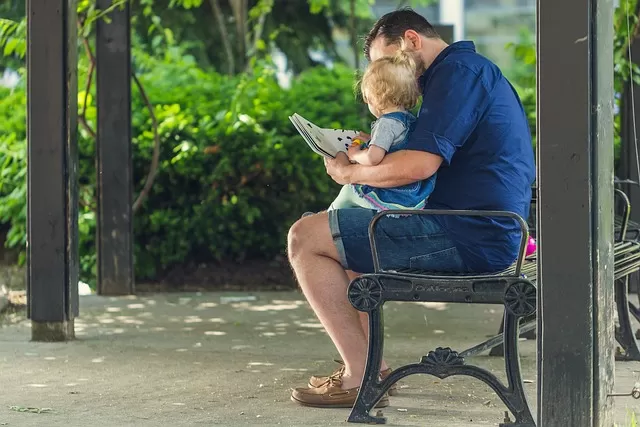Dad jokes, those cheesy and often cringe-worthy puns and one-liners, have become a staple in many households. They are the source of eye-rolls and groans from children, but also the source of laughter and bonding between parents and their kids. While some may dismiss dad jokes as simply a way to annoy our children, research suggests that they may actually play an important role in how we interact with our kids and prepare them for handling embarrassment later in life.
First, let’s define what exactly a dad joke is. According to the Merriam-Webster dictionary, a dad joke is “an often unfunny or obvious joke made by a father to his children.” These jokes are usually based on wordplay, puns, or silly scenarios, and often elicit a groan or an eye-roll from the listener. But why do dads continue to tell these jokes, even when they know they may not be well-received?
One reason could be that dad jokes serve as a way for fathers to connect with their children. In today’s fast-paced world, parents often have limited time to spend with their kids. Dad jokes provide a quick and easy way to bond with children, even if it’s just for a few minutes. They can also serve as a way for fathers to show their playful and silly side, which can help strengthen the parent-child relationship.
But dad jokes may also serve a more important purpose – helping children learn how to handle embarrassment. As children grow and navigate through life, they will inevitably encounter embarrassing situations. Whether it’s tripping in front of their crush or giving a wrong answer in class, these moments can be tough for kids to handle. However, dad jokes may provide a way for children to develop a sense of humor and learn to laugh at themselves.
When a child hears a dad joke, they may initially feel embarrassed or cringe at the corniness of the joke. But as they see their father confidently deliver the punchline and laugh at himself, they learn that it’s okay to make mistakes and not take themselves too seriously. This can help build resilience and self-confidence in children, as they learn to brush off embarrassing moments and move on.
Moreover, dad jokes can also teach children the importance of not taking themselves too seriously. In a world where social media and peer pressure can make children feel like they need to be perfect all the time, dad jokes provide a refreshing reminder that it’s okay to be silly and make mistakes. This can help children develop a more positive and lighthearted attitude towards life, which can be beneficial in the long run.
But it’s not just about handling embarrassment, dad jokes can also help children develop their language and communication skills. As dad jokes often rely on wordplay and puns, children are exposed to different ways of using language and are encouraged to think creatively. This can help improve their vocabulary, understanding of language, and even their sense of humor.
In addition, dad jokes can also serve as a way for children to learn about their culture and family history. Many dad jokes are passed down from generation to generation, and by telling these jokes, fathers can pass on their family’s traditions and values to their children. This can help children feel a sense of belonging and connection to their family, which is important for their emotional well-being.
Of course, not all dad jokes are created equal. Some may be more cringe-worthy than others, and some may not be appropriate for children. As parents, it’s important to use discretion and make sure that the jokes we tell are age-appropriate and respectful. We should also be mindful of our children’s reactions and not force them to laugh at a joke if they don’t find it funny.
In conclusion, dad jokes may seem like just a silly and harmless form of humor, but they actually serve a greater purpose in our interactions with our children. They can help strengthen the parent-child relationship, teach children how to handle embarrassment, and even improve their language and communication skills. So the next time your child rolls their eyes at your dad joke, remember that you may be helping them develop important life skills. And who knows, maybe one day they’ll even pass on your dad jokes to their own children.

